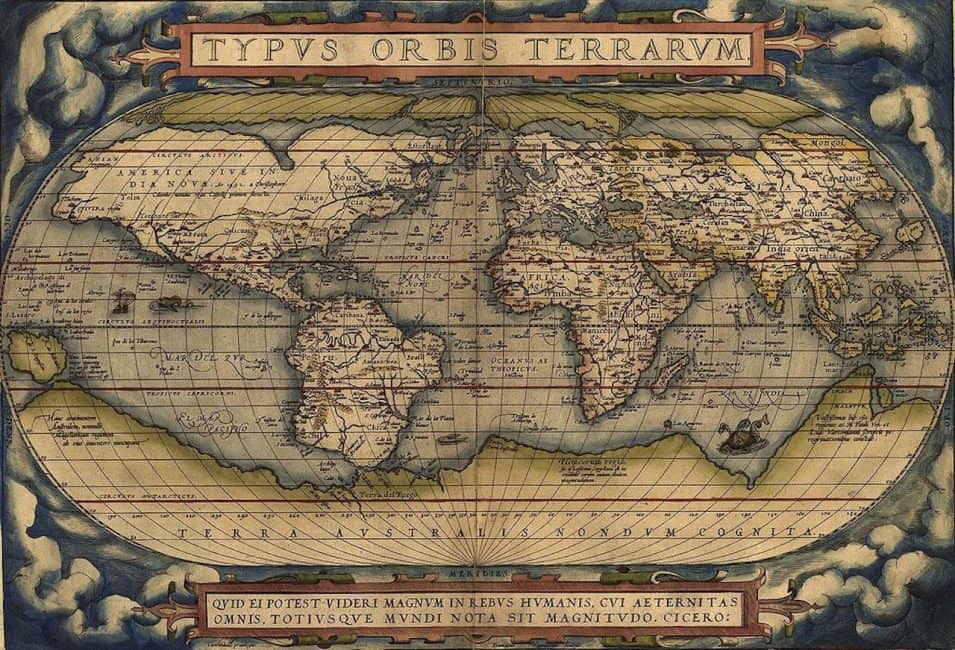1. Famous Explorers Who Made Travel Possible
2. Prince Henry the Navigator
3. Bartolomeu Dias
4. Vasco da Gama
5. Christopher Columbus
6. Amerigo Vespucci
7. Ferdinand Magellan
8. Honourable Mentions: Other Notable Explorers
Famous Explorers Who Made Travel Possible
Imagine waking up in 1422 Lisbon to find a fleet of Chinese vessels anchored in the harbour. They have come seeking trade agreements, commanded by Zhang He, who was tasked with finding Europe and discovering a way around Africa.
Zhang He commanded seven expeditions between 1405 and 1433, aiming to awe nations and enforce a tributary system across Asia and Africa. Notably, each of his expeditions dwarfed those of subsequent explorers in terms of fleet size and manpower—his first voyage in 1405 included approximately 27,800 men and 62 treasure ships along with about 190 smaller vessels.
The immense size of his treasure ships, measuring about 419 feet, stands in stark contrast to the average 75-foot caravel typically used by Portuguese explorers.
So why did the Europeans discover the “New World”?
It boils down to necessity, as Europeans were driven by their demand for spices, the most valuable commodity of that era. These spices, particularly clove and nutmeg, were exclusively sourced from the Molucca Islands in modern-day Indonesia, which were effectively monopolized by Venice.
The Asian traders had little reason to navigate vast oceans when they could trade overland. In contrast, European powers needed access to these goods.
Spain and Portugal Leading Explorers?
It’s essential to note that the age of exploration was dominated by Spain and Portugal during the late 15th century. While England and France were recovering from the Hundred Years’ War, Spain and Portugal emerged as the leading powers. The signing of the Treaty of Tordesillas in 1494 marked the formal division of the world between the two nations, heralding the beginning of the Age of Discovery.
1. Prince Henry the Navigator
Prince Henry, the third child of King John of Portugal, was influential in the advances of the Age of Discovery, despite not being an explorer himself. His contributions to maritime exploration greatly enhanced navigational routes, particularly through his development of the caravel, a ship well-suited for ocean travel.
Henry’s initiatives ultimately resulted in establishing trade routes with Africa, significantly impacting Portugal’s wealth and maritime prowess.
Established Trade Routes to Africa
Henry established a trading post in the Bay of Arguin, securing trade and bypassing Muslim intermediaries. This led to an influx of slaves and gold into Portugal, while also allowing for exploration of the Azores and Madeira Islands.
2. Bartolomeu Dias
Born: 1450, Algarve, Portugal
Died: 1500, Cape of Good Hope
Nationality: Portuguese
Bartolomeu Dias was pivotal in Portuguese exploration, embarking on a mission to find a maritime route to India in 1487. His fleet consisted of three ships, setting the stage for further Portuguese expeditions.
Sailed the Congo River
During his journey, Dias faced challenges, including a storm that halted progress for 13 days. Despite setbacks, his voyage ultimately confirmed the existence of the southern tip of Africa, prompting Europeans to search for a direct trade route to India.
3. Vasco da Gama
Born: 1460s, Sines, Portugal
Died: 1524, Kochi, Portuguese India
Nationality: Portuguese
Vasco da Gama was commissioned to lead an expedition that successfully reached India by sea in 1498, marking a significant milestone in global trade and exploration.
Expedition to India
Setting sail with a fleet of four ships, da Gama’s journey was monumental. Upon reaching India, he attempted to establish trade relations, leaving a lasting impact on Portugal’s maritime empire.
4. Christopher Columbus
Born: 1451, Genoa
Died: 1506, Spain
Christopher Columbus remains the most recognized explorer, particularly for his voyages to the Americas that began in 1492. His expeditions facilitated the exchange of goods and cultures across continents.
Columbus’ First Voyage
Notably, Columbus encountered native societies during his travels, which changed the course of history, forever altering the dynamics of exploration and colonization.
5. Amerigo Vespucci
Born: 1454, Florence, Italy
Died: 1512, Seville, Spain
Amerigo Vespucci, whose expeditions helped clarify the distinction between the New World and Asia, played a critical role in mapping newly discovered lands, leading to the naming of America in his honor.
6. Ferdinand Magellan
Born: 1480, Oporto, Portugal
Died: 1521, Philippines
Ferdinand Magellan led the first expedition to circumnavigate the globe, despite meeting a tragic end during his journey. His legacy endures as a testament to the ambition of discovery during the Age of Exploration.
Tragedy on the Ocean
Magellan’s voyage, though fraught with peril, showcased the determination of early explorers to confront the unexplored challenges of the world.
Famous Explorers in Closing
While these notable explorers were not the only figures of significance during this era, they played vital roles in shaping travel as we know it today. The influences of their journeys laid the groundwork for modern exploration and connectivity.
Honourable Mentions: Famous Explorers
Juan Ponce de León: The first Spanish explorer in Florida, entwined with the legend of the Fountain of Youth.
Prester John: A mythical king whose legend inspired many early explorations.
Vasco Núñez de Balboa: His discovery of the Pacific was pivotal in understanding the geography of the New World.
Pedro Álvares Cabral: Credited for landing in Brazil while on his way to India.
John Cabot: Recognized for his explorations of mainland North America in 1497.
The rise of Spain and Portugal spearheaded the global unification that allowed modern travel to flourish. The legacy of these explorers continues to influence how we experience and connect with the world today.





